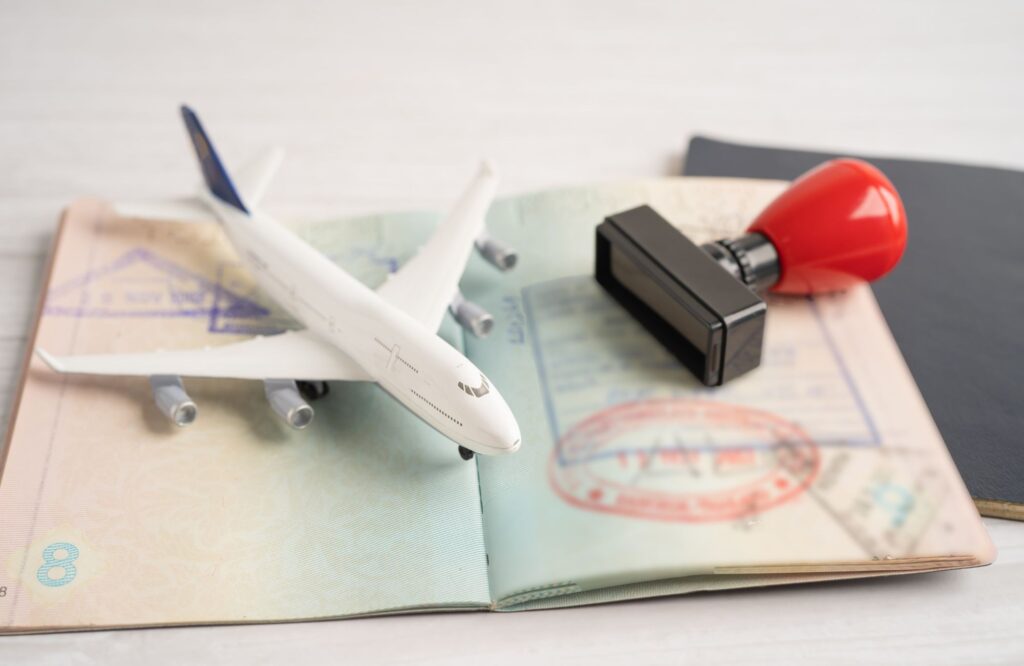Italy draws millions of travelers every year, from romantic escapes in Venice to coastal hikes along the Amalfi Coast. But before packing your bags and boarding a plane, it’s important to answer one essential question: Do I need a visa to travel in Italy? Whether you’re coming for a short vacation, business trip, or extended stay, knowing the visa and entry requirements will help you avoid unexpected issues at the border.
In this guide, we’ll explain who needs a visa to enter Italy, how long you can stay, what ETIAS is, and what documents to prepare for a smooth entry. We’ll also break down requirements by country, including travelers from the United States, UK, Canada, the Philippines, and more.
Who Needs a Visa to Travel to Italy?
Most travelers from countries like the United States, Canada, Australia, and the UK do not need a visa for short visits to Italy. Italy is part of the Schengen Area, which allows visa-free travel for up to 90 days within 180 days for citizens of visa-exempt countries.
However, travelers from certain countries are required to obtain a Schengen visa before arriving in Italy. This includes many countries in Asia, Africa, and South America.
Visa-Free Countries Include:
- United States
- Canada
- United Kingdom
- Australia
- Japan
- South Korea
- New Zealand
- Israel
If your country is not on the visa-exempt list, you must apply for a Schengen visa through the Italian embassy or consulate in your country before traveling. For the full list of countries that require a visa, consult the Italian Ministry of Foreign Affairs website.
How Long Can You Stay in Italy Without a Visa?
If you’re a citizen of a visa-free country, you can stay in Italy and other Schengen countries for up to 90 days within any 180 days. This rule applies even if you’re visiting multiple countries during your trip.
Examples of the 90/180-Day Rule:
- Stay 60 days in Italy, then travel to France for 30 days: Allowed.
- Stay 100 consecutive days in Italy: Not allowed (violates the Schengen rule).
Authorities count all days in the Schengen Area, not just Italy. So, if you spend 30 days in Germany and 60 days in Italy, you’ve reached your limit. Make sure your passport is valid for at least three months beyond your planned departure date. The Italian authorities may deny entry if your passport expires sooner.
What Is ETIAS and Will You Need It?
ETIAS (European Travel Information and Authorization System) is a new security system that will affect travelers from visa-exempt countries starting in 2025–2026.
ETIAS is Not a Visa
It’s a travel authorization, similar to the U.S. ESTA, that allows you to enter Schengen countries like Italy. ETIAS is meant to screen travelers before arrival to combat issues like irregular migration, terrorism, and human trafficking.
What You Need to Know About ETIAS:
- Applies to travelers from countries that don’t need a visa (e.g., U.S., UK, Canada).
- Cost: €7 (free for travelers under 18 and over 70).
- Valid for three years or until your passport expires.
- Apply online, and approval typically takes just minutes.
You’ll need to complete an application with:
- Passport details
- Travel history
- Health/security background
- Planned date of arrival
While the system is not yet active, it’s strongly recommended to monitor the official ETIAS website for the latest updates.
Do You Need a Visa for Long Stays or Special Purposes?
If you plan to stay in Italy for longer than 90 days or purposes like work, study, or family reunification, you will need to apply for a national (long-stay) visa or a residence permit (permesso di soggiorno).
Common Long-Stay Visa Types:
- Student Visa: For full-time education programs.
- Work Visa: Requires employer sponsorship.
- Family Visa: For joining a spouse or family member.
- Elective Residency Visa: For retirees or individuals with stable income.
The application must be submitted at your nearest Italian consulate or embassy, and you will likely need to show:
- Proof of accommodation in Italy
- Proof of financial means
- Medical insurance
- Purpose of stay
Once in Italy, you must apply for a residence permit within eight days at the local police headquarters (Questura).
Required Travel Documents to Enter Italy Without a Visa
Even if you don’t need a visa, Italian border control may still ask to see certain documents. These ensure that your stay in Italy meets entry requirements under the Schengen Agreement.
Documents You Should Carry:
- Valid passport (at least 3 months beyond your departure date)
- Proof of accommodation (hotel reservation or invitation letter)
- Proof of return or onward travel (plane/train ticket)
- Proof of financial means (credit card, bank statement)
- Travel medical insurance (recommended, especially for emergencies)
Italian border police have the right to deny entry if they suspect you don’t meet requirements—even if you’re from a visa-exempt country.
Country-Specific Advice: U.S., UK, Canada
When planning a trip to Italy, it’s important to consider your nationality and the specific entry requirements. While citizens of many countries can travel to Italy without a visa, certain rules and systems
United States
For U.S. citizens, a visa is not required for stays in Italy of up to 90 days. However, starting in 2025, U.S. travelers will need to apply for ETIAS (European Travel Information and Authorization System) before entering Italy. A valid passport must be presented upon arrival.
United Kingdom
Post-Brexit, UK citizens are treated as third-country nationals. They do not require a visa for stays up to 90 days. However, starting in 2025, UK citizens will also be required to obtain an ETIAS before entering Italy.
Canada
Canadian travelers can visit Italy without a visa for short stays. However, ETIAS will be required for Canadians by late 2025. Each traveler’s experience may vary depending on their travel history, criminal record, or the purpose of stay. It’s recommended to consult the official Italian embassy website in your country for the most up-to-date information.
Each traveler’s experience can vary depending on travel history, criminal record, or purpose of stay, so always consult the official Italian embassy website in your country for the most up-to-date information.
Conclusion
It’s essential to understand Italy’s visa and entry requirements to ensure a smooth and enjoyable trip. Whether you’re staying for a few days or planning to settle for longer, knowing whether you need a visa, what documents to carry, and when ETIAS will apply can save you time and stress. Stay updated on the changes to Italy’s entry rules, especially with the ETIAS system coming into effect in 2025.
If you’re seeking an authentic and stress-free way to explore Italy, True Colors of Italy offers private, all-inclusive day tours that immerse you in the hidden treasures of the Le Marche region. Whether you’re traveling solo or with a small group, our tailored excursions focus on culture, cuisine, and natural beauty, all led by local experts who know the area inside and out. Contact us today to start planning your personalized Italian adventure and create unforgettable memories.
FAQs
Can Americans go to Italy without a visa?
Yes. U.S. citizens can visit Italy for up to 90 days without a visa. Starting in 2025, they must apply for ETIAS before entry. Always ensure your passport is valid for at least three months past your planned return date.
Can I go to Italy with a US passport card?
No. A U.S. passport card is not valid for international air travel to Italy or other European countries. You must carry a standard U.S. passport book.
How much is a visa to Italy from the USA?
A standard Schengen visa fee for U.S.-based applicants is approximately €80 (~$85). Additional fees may apply if using a visa application center. Note that U.S. citizens typically don’t need a visa for short visits.
What happens if I overstay in Italy?
Overstaying the 90-day limit can result in fines, deportation, or a ban from entering the Schengen zone again. Italian authorities take entry and exit rules seriously. You may also face difficulties applying for future visas.
Do I need to register with the police when visiting Italy?
If you’re staying with friends or family (not a hotel), you must file a Dichiarazione di Presenza (Declaration of Presence) with the local police headquarters (Questura) within eight days of arrival.
Is travel insurance required to visit Italy?
While not mandatory for citizens of visa-exempt countries, travel insurance is required for Schengen visa applicants. Regardless, it’s strongly recommended for all travelers to cover medical emergencies or trip disruptions.












